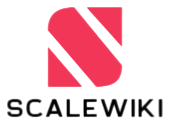The AI Generative Search is Reshaping Digital Information Discovery
Artificial intelligence is transforming how businesses connect with audiences. Generative search, powered by AI, is becoming a vital tool in digital marketing, offering precise, personalized, and context-aware results. Unlike traditional search engines, AI generative search goes beyond matching keywords—it interprets user intent, predicts preferences, and delivers content tailored to individual needs. This shift is not only changing how information is discovered but also how brands communicate their message. Understanding the emerging trends in AI generative search is crucial for marketers aiming to stay ahead and maximize their digital strategies.
Personalized Search Experiences
AI generative search enables highly personalized experiences. By analyzing user behavior, history, and context, search engines can deliver content that resonates with each individual. Marketers can leverage this to:
- Provide tailored product recommendations
- Create dynamic content that adjusts to user preferences
- Improve engagement and retention through relevant suggestions
Natural Language Understanding
The rise of natural language processing NLP allows AI to interpret conversational queries more accurately. This trend helps marketers:

- Optimize content for question-based searches
- Align messaging with how users naturally speak
- Enhance voice search and chatbot interactions
Content Generation and Optimization
Generative AI can produce high-quality content quickly, helping brands meet growing content demands click here for more info. Digital marketers can benefit by:
- Automating blog posts, social media updates, and product descriptions
- Testing multiple content variations for performance
- Reducing production time while maintaining quality
Predictive Analytics and Insights
AI generative search can predict trends and user preferences based on data patterns. This provides marketers with:
- Insights into emerging topics and audience interests
- Data-driven guidance for content planning
- Improved decision-making for ad targeting and campaign strategy
Visual and Multimodal Search
The future of search is increasingly multimodal, incorporating images, videos, and audio. AI can analyze and interpret various content types, allowing marketers to:
- Optimize visual content for discovery
- Engage users through interactive media
- Enhance brand storytelling with richer experiences
Ethical AI and Transparency
As AI becomes central to search, transparency and ethical use are essential. Marketers must consider:
- Clear disclosure of AI-generated content
- Avoiding bias in algorithms
- Maintaining trust with audiences through responsible AI practices
Integration with Marketing Automation
Generative search integrates seamlessly with automation tools, enhancing efficiency. Benefits include:
- Streamlined campaign workflows
- Automated lead nurturing and content delivery
- Consistent brand messaging across channels
Conclusion
AI generative search is redefining digital marketing by making search more intuitive, personalized, and insightful. Marketers who embrace these trends can deliver content that aligns with user intent, enhances engagement, and drives conversions. From personalized experiences and predictive analytics to multimodal search and automation integration, the possibilities are vast. Staying informed about these developments ensures businesses remain competitive and can fully harness the potential of AI in shaping the future of marketing.

